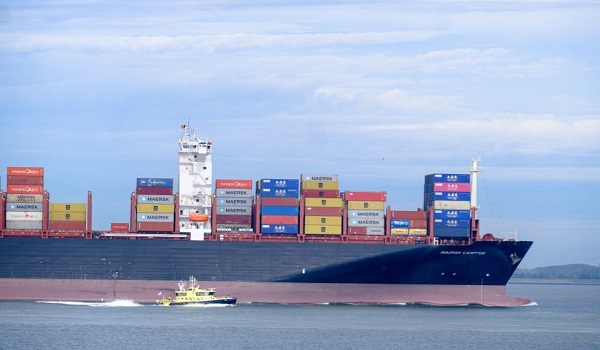The chaos in the Red Sea is causing significant disruptions to global food supply chains, creating concerns for various agricultural sectors and raising fears of increased food inflation. Ships loaded with perishable goods, including coffee and fruits, are altering their routes to avoid Houthi attacks in the Red Sea, opting for longer and costlier journeys around Africa. This shift is impacting the freshness of produce and elevating shipping costs, particularly for Italian exporters who sell around $4.4 billion worth of agricultural products to Asia.
The longer shipping times are a significant worry for the industry, as perishable foods risk becoming unsellable, affecting various products such as kiwi, citrus fruits, Chinese ginger, and African coffee cargoes. Grain shipments are being redirected from the Suez Canal, and livestock carriers are altering their courses, reflecting the widespread ramifications of the unrest.
While the immediate impact is somewhat limited, there is a growing recognition of the vulnerability of global food supply chains. The disruptions have the potential to impede the recent decline in food commodity costs, which has provided some relief to consumers. Euro Fruits, a major Indian grape exporter, is now compelled to use a longer route, significantly increasing freight costs and transit times, ultimately compromising grape quality and leading to higher prices for European importers.
The challenges extend beyond fruits, affecting various agricultural produce, including apples, kiwi, citrus fruits, and meat. European exports of pork, dairy, and wine, as well as imports of tea, spices, and poultry, are facing uncertainties. The diversion of grain shipments intended for the Suez Canal, with a significant portion destined for China and Southeast Asia, is also contributing to the complexity of the situation.
Major retailers like Tesco and J. Sainsbury are expressing concerns about potential inflation on certain goods due to shipping disruptions. The impact is evident in markets, with fresh ginger prices surging and delays affecting coffee cargoes to Europe. Traders are experiencing challenges in securing robusta beans for instant coffee, altering traditional supply chains.
The unrest in the Red Sea is not only disrupting transportation but also leading to a reevaluation of global trade routes, with importers seeking alternative sources and exporters facing challenges in adapting to longer transit times and increased costs. The consequences of these disruptions are expected to unfold further as the situation in the region evolves.


